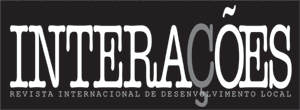Abstract:
This paper analyses the participation and dialogicity in the management of private and non-proft organizatons with socio-educational objectives in rural areas. Particularly, it examines the Casa Familiar Rural (CFR) [Rural Family House] organisaton management located in Cametá municipality, in Pará state. The CFR organisaton covers in its principles the approach of participatory management involving every people who are part of it, in particular community people. The CFR follows the proposal of the Pedagogy of Alternaton. Theoretically, the discussion is based on the field of social management. Methodologically, it is a qualitative study that gathered data from the documentary analysis, semi-structured interviews, and focus groups with the CFR’s members. The paper shows that participation and dialogue in CFR management occur from diverse typologies and forms. In the case of CFR of Cametá, it was found that dialogicity is linked to the active, passive, or interactive typologies of participation, which happen in diferent ways according to the actor’s category and the historical period we are speaking about. Throughout its history, the CFR Cametá covers all types of participation: conquered, voluntary or spontaneous, affective, instrumental, and for individual gains.
Keywords:
participation; dialogicity; social management; Rural Family House
